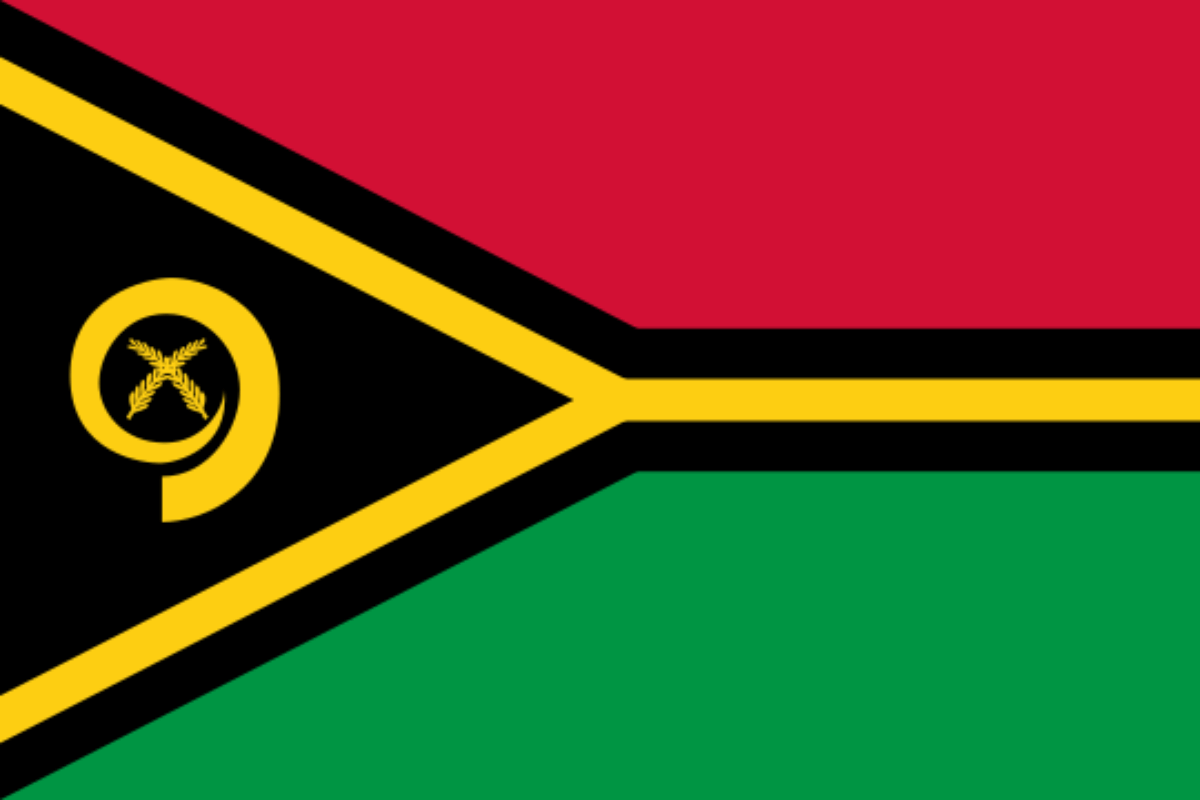The national animal of Vanuatu is the iguana. This island nation is home to a large diversity of native fauna, and their rainforests are home to many different species of reptile. There are nineteen lizard species native to the island, and the iguana has come to be one of the most symbolically significant in the country.
The iguana, then, though without the might of a big cat or the bounding grace of an antelope, is nonetheless an image that resonates to some extent with all of us.
Even those of us who might never have seen an iguana probably know what one looks like and the kinds of places you might find them.
Let’s find out more.

What is the national animal of Vanuatu?
The national animal of Vanuatu is the iguana.
Now, it’s worth clarifying that our word “iguana” is a term for a fairly diverse genus of herbivorous lizards native to tropical areas mostly in the Americas.
Indeed, in the strictest sense, this genus is not even really native to Vanuatu.
Though they have existed on the island for thousands of years, it seems that they floated their on rafts from Fiji.
They did not evolve on Vanuatu, though for all intents and purposes they are now native to the island.
But in any case, the word iguana is not a single species.
The most common iguana to be found on Vanuatu is the banded iguana.
As the name suggests, these lizards feature striking bands of color over their bodies.
They are typically green and usually have blue markings across their bodies.
They are highly geographically isolated and one of the few species of Iguana that are found outside of the New World.
Sadly, as with so many other species around the world, the global populations of banded iguana has been steadily declining over the years.
This is in part due to the destruction of their habitat—though this is less of a problem on Vanuatu itself.
The bigger problem, though, has been the introduction of domestic animals like mongoose and housecats to the islands they live on.
These pets decimate local populations through hunting, leaving the iguanas little chance.
It is currently listed as endangered and so its long term survival is threatened, though conservation efforts are underway to preserve the species.
This, then, is the national animal of Vanuatu in the strictest sense, but more broadly the word iguana is simply used rather than banded iguana specifically.
Lizards are often an important symbol of island life and indeed reptiles often haunt the imaginations of human beings.
How many iguana species are there?
To put into perspective just how wide ranging the term iguana is, you should know that there are roughly 30 species of lizards in the iguana family.
This comes down to a question of nomenclature and classification.
The word “iguana” describes a genus of herbivorous lizards connected by immediate evolutionary links.
A genus is a taxonomic rank, coming just one above species which is the most specific taxonomic distinction.
So, relatively speaking iguana is a fairly specific term, but at the same time it does refer to as many as 30 different animals.
On Vanuatu, there are around 19 species of lizard consisting of 13 species of skink and five species of gecko.
There are multiple islands comprising Vanuatu, and the banded iguana is found only on the main island called Efate.
Iguanas are a really important Vanuatu symbol, then, even though there are so many other species of lizard besides that are in fact “native” to the country in a stricter sense.
This, of course, is a fairly meaningless distinction to the native people when the iguana has been there for millennia.
What about the personalities of these lizards?
Are iguanas friendly?
In the wild, iguanas are not particularly friendly.
They are not exactly dangerous, and they are infinitely more likely to simply disappear before you ever see them than they are to become aggressive.
That said, domestic iguanas can certainly be affectionate in their own way, though of course they are not like dogs or cats.
They are far more distantly separated from human behavior by time and evolution, so it can be harder to interpret their behavior as affectionate.
In the wild, they are simply rather timid—remember, they are not meat eaters, and they just don’t want to be bothered while they hunt for forage.
Are iguanas dangerous?
It’s unlikely that an iguana would be able to seriously injure you.
Their venom is weak and virtually harmless for an adult.
They do, though, have very sharp teeth, even though they don’t often bite, and these could produce injuries especially in younger children.
Again, though, iguanas are far more likely simply to run away than they are to try and attack you.
If they feel cornered they may lash out, but the possibility of getting an agile lizard into the position where its only choice is to attack you is vanishingly unlikely.
With all that said, if you see one in the wild, just leave it alone!
So, while you might struggle to get a chance to see one in the wild, these fascinating creatures are nonetheless brilliant to admire from afar.
In Vanuatu they have become an important national symbol for a variety of reasons, but if nothing else there’s the simple fact that only a handful of species live on the island and thus every one is likely to have some significance locally.

